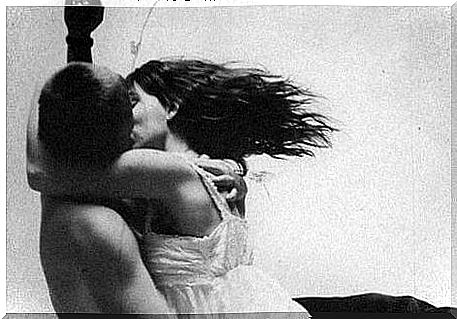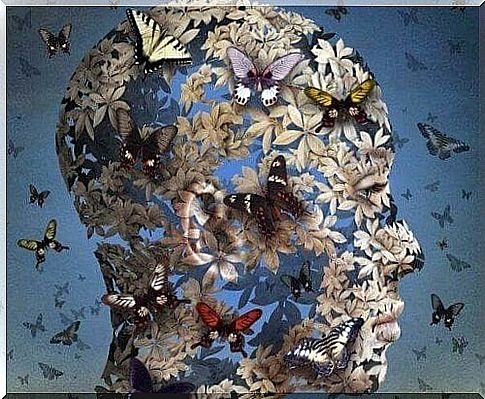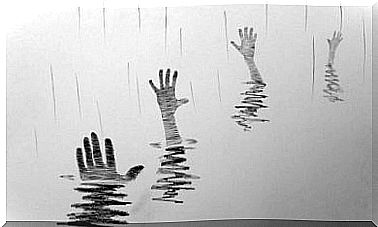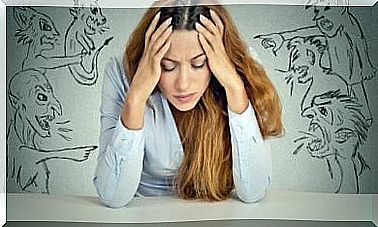Why Do We Follow Our Emotions More Than Our Reason?

Human beings are an amalgamation of perceptions, emotions, feelings and thoughts.
All these elements form a unity, and this unity generates a way of being and of acting in the world.
Our minds are extraordinarily powerful and skillful in directing our conduct, both to do good and to do evil.
Thanks to him, we carry out all the processes of rational thought. But one also feels in him extraordinarily powerful forces: the emotions.
So, we can say that we are reason and emotion. Forces which, sometimes, are directed towards the same place, but which, other times, clash and force us to make a decision.
We have the choice to follow our “heart” or to pay attention to the list of pros and cons.
Most studies that have looked at the decision-making process show that, in general, it is emotions that win.
This is so because, in fact, reason occupies a higher level in the scale of the elaboration of subjective experiences.
Thus, it takes more experience, more time and a greater degree of skill to construct reasons than to arouse emotions.

Emotions: as ethereal as air and as dangerous as sulfur
“Emotion”, etymologically, means: “action to move, movement”; “Who moves to”. Emotions are subjective experiences that prompt us to act.
They arise from perceptions of the world, rather than from reasoning as such.
Something that is perceived simply as beneficial unleashes emotions of pleasure. And the same vice versa.
A lot of human behavior depends on emotions. These, therefore, can be transcendent or, at the very least, weigh heavily in the decisions we make. Much more than that, in general, they are decisive.

Fear, for example, is a very powerful emotion, according to specialist psychologist Rob Yeung.
Hence the fact that it is very often used by the means of communication and that it is an effective strategy in politics.
In the same way, shame and pride are emotions which make the human being very manipulable.
By exploring the origin of emotions …
In theory, emotions are not decisive, but they can, on the other hand, be very decisive.
They are intrinsic to the human being and are involved in his judgments and in the deliberations of life.
This is not to deny them, but to identify them and learn to channel them for our own benefit.
There are many examples every day that show us how emotions dominate much of human behavior.
For example, someone may think they need to be more patient, but when they have to queue in a queue or tolerate a delay, they get angry and forget their original intention.
Emotions, in general, obey causes that we do not know. We don’t know exactly why we sometimes feel intense anger when we are served cold coffee, when in our heads we tell ourselves that it is not really something important.
We also often don’t know why we’re so afraid of public speaking, for example, when it’s ultimately a situation we can control.

In truth, the power of emotions arises precisely from their indefinite origin and development. E
They are part of an area of ourselves that is diffuse and sometimes incomprehensible. Yet, deep down, in each emotion, what takes shape are our instincts… for survival, preservation of the species, defense, attack, etc.
Is there a divorce between reason and emotion?
In fact, there is no categorical border separating emotion from reason.
In reality, these are dimensions of the human being which always act together. Emotions give rise to thoughts, and thoughts, in turn, give rise to emotions.
All emotion is thought to some extent. When this measurement is low, it gives rise to confused and erratic emotions.
When the measure of reasoning is important, it allows for a deeper and more balanced experience of reality.
The little sifted emotion through reason gives rise to a distorted perception of reality.

Those who call themselves “highly rational” do not escape this logic. If we look at it carefully, this refusal to allow emotions to seep into life probably obeys a deep fear of “losing control”.
Likewise, imagining purely emotional actions, without a pinch of reason, is more or less absurd.
Human beings cannot give up the cerebral cortex unless they are injured or suppress their brain functions with a drug.
Achieve the balance between reason and feeling
Emotions are fiery and wild horses whose reins we have to “hold”. They constitute us as human beings and form part of an important subjective baggage which helps to give a specific meaning to the world. They must not be “eradicated”, or even denied or devalued.
Quite the contrary: to be able to feel is to be able to be human. It is only on the basis of emotions that love, sacrifice, big dreams and great feats are built.
Yet that doesn’t mean that we can or should leave these emotions “raw” and just live them without thinking about them.

We reach a point of equilibrium when we are able to pay attention to what we are feeling, not in order to defend ourselves against it, but in order to channel those same emotions so that they are profitable.
This means that if I feel fear, the best solution is to recognize it, examine it and, why not, transform it into a force to my advantage.
If I’m scared of public speaking maybe I can design some great tech aids to help me cope with this.
Emotions influence us more than reason because they are in a more primitive area of our brain, which is, therefore, deeper.
They are at the base of all that we are. Reason is like a chisel with which we can polish these emotions to pacify them and allow them to help us live better.









